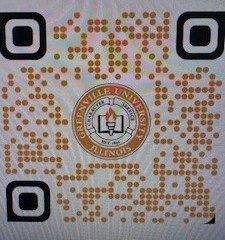Greenville University offers an emergency notification system to students and employees. With this system, an alert is sent to your cell phone as a text-message and/or as an e-mail to your e-mail address.

Your information will only be used for contacting you in the event of an emergency and will not be shared. You will also have the option to have the alert automatically notify you in the event of a Tornado Warning.
For additional information, see the FAQ's below.
Alerts are messages about an emergency. The message may alert you to an emergency situation, ask you to take action, or both. The messages are short (only 160 characters long). For more detailed information, you may need to go to another source of college emergency information. You must have a phone that is capable of receiving either text messages or e-mail or have a computer that can receive e-mail to receive the notifications.
FAQ's
Why should I register?
While Greenville uses a number of distribution methods to notify you of an emergency, using the Emergency Notification System could save you critical time depending on upon your location.
Does registering automatically update my emergency contact information in my student or employee records?
No. Registering for the Emergency Notification System will not alter the emergency contact information listed in your student or employee records.
Is there a charge for registering to receive messages through the Emergency Notification System?
This is a free service provided by Greenville University. However, your cell phone provider may charge you for receiving text messages (SMS). Check your service agreement for details. Service costs from your cellular provider are your responsibility.
Why are you sending a text-message and not calling me?
Attempting to call everyone could take hours. This is an important factor especially during a time sensitive emergency. Alerts will be short and are meant to make registrants aware that there is an emergency and direct them to other college resources for additional information.
Under what circumstances will I receive an alert through the Emergency Notification System?
Alerts are used during emergencies that threaten life safety on a campus and/or severely impacts normal campus/college operations.
Will Greenville periodically test the system?
Greenville is planning on sending a test message once per semester to verify your subscription to this service and to ensure the system is working properly. Announcements will be posted when this test is to take place.
Will the system work if there is a power failure?
All systems, including email and text message systems are subject to failure due to emergencies or disasters. The emergency notification system itself is not reliant on power at Greenville and therefore should continue to operate in a power failure on campus, although some systems, such as your computer could be affected by a local power outage. While our emergency notification system is a valuable addition, we cannot guarantee that it will work in all emergencies. This is why we have and are building additional redundant systems of emergency communication.
I don't want to receive messages anymore. How do I unsubscribe?
At any time, you can simply return to the Emergency Notification sign-up page and click the unsubscribe button. Enter the contact information you used to register and then select the unsubscribe box at the bottom of the page.
How do I update my information if my email address, cell phone number or pager number has changed?
If your contact information has changed, follow the instructions above to unsubscribe the information that has changed. You must register again with your new contact information.
How do I acquire additional information or report a problem with the system?
Please email any additional questions or report problems to the Campus Safety Office at CampusSafety@greenville.edu or call 618.664.7777.
Please note that no communication distribution method, including text messaging, is infallible. For that reason, Greenville uses redundant systems of emergency communication, including telephone, Internet, email, radio, and person-to person, to distribute news and instructions during an emergency.
